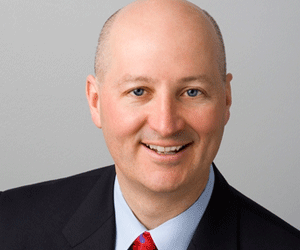
Ricketts unveiled the plans in his annual State of the State address that focused heavily on taxes while highlighting his new college scholarship initiative and a proposed tax exemption for military retirees.
Ricketts is seeking a constitutional amendment to prevent local property tax revenues from growing by more than 3 percent annually. Lawmakers would have to place the issue on the 2020 ballot for voters to approve.
The Republican governor’s plan would provide $550 million in state dollars over two years to the property tax credit fund, a 23 percent increase over the previous budget cycle. The fund provides money to local governments to reduce what property owners would otherwise have to pay.
Ricketts also backed a bill that would require the state to guarantee at least $275 million a year for the property tax credit fund and prevent lawmakers from withdrawing the money for other purposes.
“Property tax relief is the number one priority Nebraskans want as I travel the state, and many of you have shared similar stories with me from your districts,” Ricketts said in his remarks.
Ricketts said his combined proposals would deliver “immediate relief and structural reform” for property owners who frequently complain about their tax bills. But he said he was open to other ideas, including measures that would change the way agricultural land is valued so it more closely aligns with farm incomes.
“As we work on property tax relief, any proposal should help control spending, fit in the budget and cannot raise taxes on one group of people to raise taxes on another group,” he said.
The governor’s proposed budget recommends an additional $49 million to build two new high-security units at the Lincoln Correctional Center and $6.6 million to increase staffing and rehabilitative programs for inmates. The new housing units would allow for an additional 384 beds, while the rehabilitative programs are intended to cut recidivism rates.
Nebraska’s corrections department faces a July 1, 2020, deadline imposed by the Legislature to lower its inmate population to 140 percent of what its facilities were designed to hold. If the department falls short of that target , the prisons will fall into an automatic “overcrowding emergency” that will force state officials to consider paroling all eligible inmates right away.
Ricketts said his funding proposal “will help assist in bringing our prison population below the emergency level set by the Legislature”
Ricketts also called for increased state funding to K-12 public schools and the University of Nebraska, as well as a scholarship program for students in high-demand areas such as engineering and information technology.
State spending would increase at an average rate of 3.1 percent annually under the governor’s budget proposal. Ricketts said much of the increase is driven by the funding boost for K-12 schools and the voter-approved measure to expand Medicaid under the federal health care law.
“We have a responsibility to the people we care for and the people who pay the bills, the taxpayers,” he said. “Let’s put Nebraskans first as we work on this budget.”
